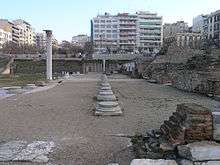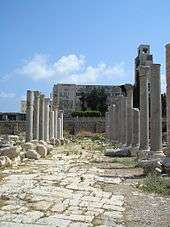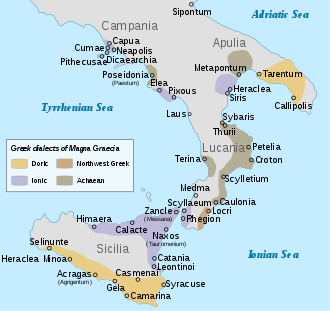Agora
The agora (/ˈæɡərə/; Ancient Greek: ἀγορά agorá) was a central public space in ancient Greek city-states. It is the best representation of city form’s response to accommodate the social and political order of the polis.[1] The literal meaning of the word is "gathering place" or "assembly". The agora was the center of the athletic, artistic, spiritual and political life in the city.[2] The Ancient Agora of Athens is the best-known example.


Origins
Early in Greek history (10th–8th centuries BC), free-born citizens would gather in the agora for military duty or to hear statements of the ruling king or council. Later, the agora also served as a marketplace, where merchants kept stalls or shops to sell their goods amid colonnades. This attracted artisans who built workshops nearby.[3]
From these twin functions of the agora as a political and a commercial space came the two Greek verbs ἀγοράζω, agorázō, "I shop", and ἀγορεύω, agoreúō, "I speak in public".[4]
The term agoraphobia denotes a phobic condition in which the sufferer becomes anxious in environments that are unfamiliar – for instance, places where they perceive that they have little control. Such anxiety may be triggered by wide-open spaces, by crowds, or by some public situations, and the psychological term derives from the agora as a large and open gathering place.
See also
References
- Caves, R. W. (2004). Encyclopedia of the City. Routledge. p. 10.
- Ring, Trudy; Salkin, Robert; Boda, Sharon (1996). International Dictionary of Historic Places: Southern Europe. Routledge. p. 66. ISBN 978-1-884964-02-2.
- Peppas, Lynn (2005). Life in Ancient Greece. Crabtree Publishing Company. p. 12. ISBN 0778720357. Retrieved 6 January 2017.
- ἀγορά, ἀγοράζω, ἀγορεύω. Liddell, Henry George; Scott, Robert; A Greek–English Lexicon at the Perseus Project.
External links

- Official Athenian agora excavations
- Agora in Athens: photos
